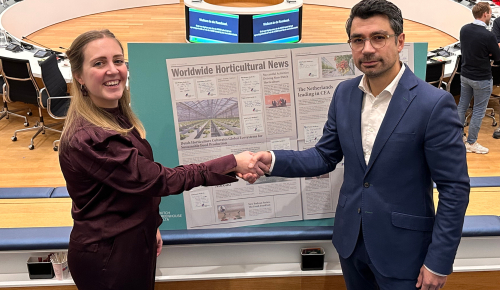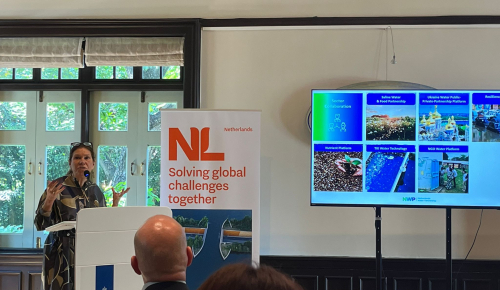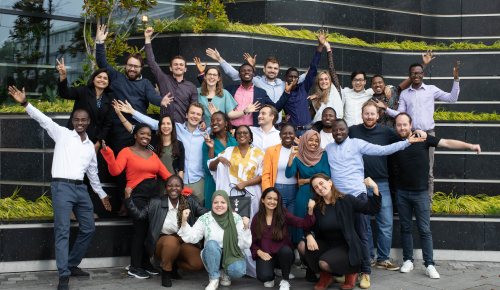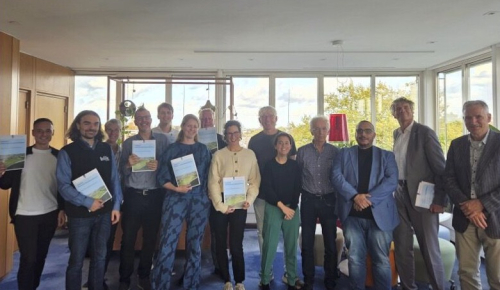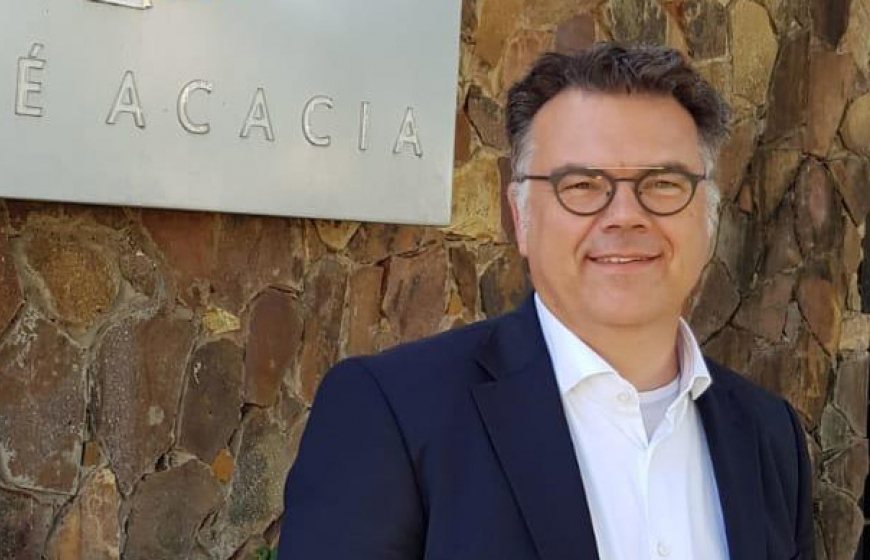
Most entrepreneurs in the water sector expect their international turnover to increase in 2020 by about eight percent. The Water Export Index 2019 report (WEX) identifies opportunities in Europe, Africa and the Middle East. Markets are improving and there is growing demand for new solutions to mitigate climate change. General manager of NWP member Acacia Water, Arjen de Vries, took part in a survey of about 100 Dutch water companies conducted for this report.
‘It is a good thing that the Water Export Index is being compiled, since it shows where opportunities lie and what kind of instruments suit them best. That is why Acacia Water gladly collaborated. The report is also a basis for policy and strategy development. As for the geographical opportunities, this information is less relevant to us because we mainly operate in the Netherlands and in Africa.
Under a tree in Kenya
Acacia Water has a dual focus. On the one hand, we work in the Netherlands where we have built up a great deal of knowledge on water topics such as salinisation. We also know all the programmes, projects and stakeholders necessary to operate successfully on our home market. And on the other hand, we work on the continent of Africa. Personally, I get highly energised from working in areas of Africa where no one feels responsible for the local population for whom I can do valuable work. I am happy to stand under a tree in Kenya to find out what climate change really means for a local farmer and think about how I can help. I always try to look at the whole picture, which is essential if you want to achieve sustainable results. For instance, downstream problems often need to be solved upstream, but at the same time you need to be careful not to create new challenges upstream.
Knowledge, information, implementation
I have often seen that little evaluation is done into why a well has run dry. At Acacia Water, for instance, we have often seen situations in which a village elder wanted the well to be placed in his back garden. However, if proper hydrological information and data had been gathered, a different location would have been chosen. And another problem is that funding is often primarily intended for drilling wells, rather than for making good hydrological maps. It is crucial to think carefully and gather sufficient data from an area before starting any implementation.
We are currently working on a project in a major coastal city. The city was first hit by a severe drought that lasted for nine months, and then floods of up to one metre caused by rain. A month later, all the water had flowed away to the ocean. This level of water catastrophe requires creative integrated solutions. We talked about storing water in an aquifer with the city government. This would be a nice example of building with nature. The city government wanted to know how many cubic metres of water could be stored and how the water could be sold afterwards. To secure national and international financing, a scenario like this needs a strong business case. However, in water management related projects, it is difficult to develop one at such an early phase. I realise that accountability is important and that no money must be squandered, but finding potential solutions is also about gut feelings and trust, and daring to make choices.
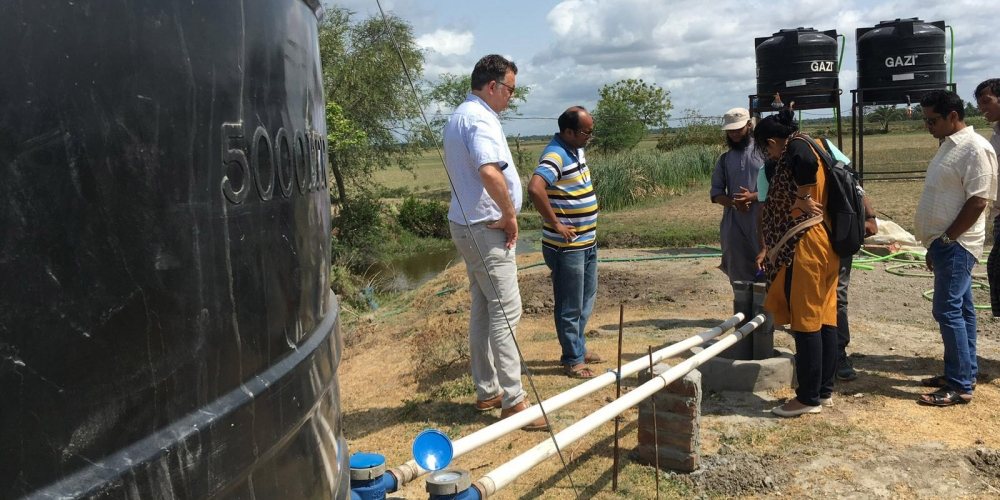
Overlooked work area
The WEX report mentions that water scarcity is an important theme for activities abroad. This, of course, appeals to us as it is our core business. Groundwater is an overlooked work area. It is literally ‘out of sight, out of mind’. Too often, groundwater is pumped out until the well is dry. But we know how to find wells, how much water they contain and how we can use them sustainably. We have very specialised knowledge on this topic, we maintain strong ties with universities, and we look far ahead. We are not unique though and small niche players like us help make the sector stronger.
Although we have plenty of business leads, I have always been a bit jealous of companies that sell tangible products. Exporting knowledge is a lot more complicated as we cannot simply put innovations on the market, we constantly need to prove our added value. And on top of that, financing is more product-related than knowledge, services and data related. Add to this the fact that in water management – and especially for groundwater management – it is difficult to determine who the owner of the water is. We always have to deal with many interests and stakeholders. Everybody passes on the responsibility which makes it difficult to move ahead.
NWP’s new strategy
These are the reasons why I support the new strategy of the Netherlands Water Partnership (NWP) to step away from facilitating projects to initiating concrete projects. In addition, if you want to come up with sustainable integrated solutions, you must bring substantive knowledge on board at an early stage. The Dutch water sector propagates an integrated approach and I agree that this is the only way ahead, even though it is not the easiest concept to market.
Double-digit each year
Continuing working towards delivering an integrated approach opens many opportunities for sustainable profit for both the countries where we operate and for the Dutch water sector. I recently attended a meeting where an investor told me that he had googled the world’s water challenges and found that Dutch expertise is outstanding. This made him wonder why Dutch water exports were not increasing by double-digits every year. And I think he has a good point.’
Featured NWP members: Acacia Water
